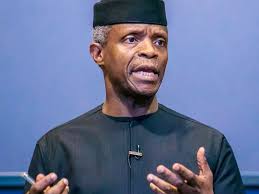
According to projections received by the economic sustainability committee, Vice President Yemi Osinbajo has disclosed that 39.4 million Nigerians may become unemployed by the end of 2020
Osinbajo who disclosed this while presenting the committee’s report to President Muhammadu Buhari on Thursday June 11, said the National Bureau of Statistics also projects that the country would have a revenue shortfall of N185 billion monthly with oil prices at $30 a barrel.
The committee was saddled with the responsibility of developing a credible sustainability plan for repositioning the Nigerian economy pre and post-COVID-19 crisis period.
Before laying out the plan, which would be driven by various federal ministries and agencies of government, the Vice President observed that the grim pictures would get bad if government failed to take necessary preemptive measures to mitigate the effects of COVID-19 outbreak.
He said, “In addition, the inevitable mandatory lockdowns and social distancing measures put in place to curb the spread of COVID-19 have had a severe negative impact on farms and factories, as well as on trade, transport and tourism.
“Several projections, including those done by the NBS on behalf of the Economic Sustainability Committee showed a severe downturn in our oil earnings as a result of which, even with oil price at 30 dollars a barrel, we would still have a shortfall of about N185bn every month, in the amount available for allocation to the three tiers of government.
“That unemployment may rise to 33.6% or about 39.4 million people by the end of 2020 if we fail to take prompt preemptive measures; that millions more will fall into extreme poverty before the pandemic ends; that GDP may fall to between minus 4.40% and minus 8.91%, depending on the length of the lockdown period and strength of our economic response.”
However, laying out the plans of government to mitigate the COVID-19-induced economic woes, Osinbajo said his committee had designed ranges of responses to the threat, adding that the thrust would be to localise production and consumption.
He said the plan, which gathered contributions from various sectors and ministries, would focus efforts on agriculture, production and construction of infrastructure across the country, adding that the plan intended to open doors to young Nigerians both from the formal and informal segments of the economy.
